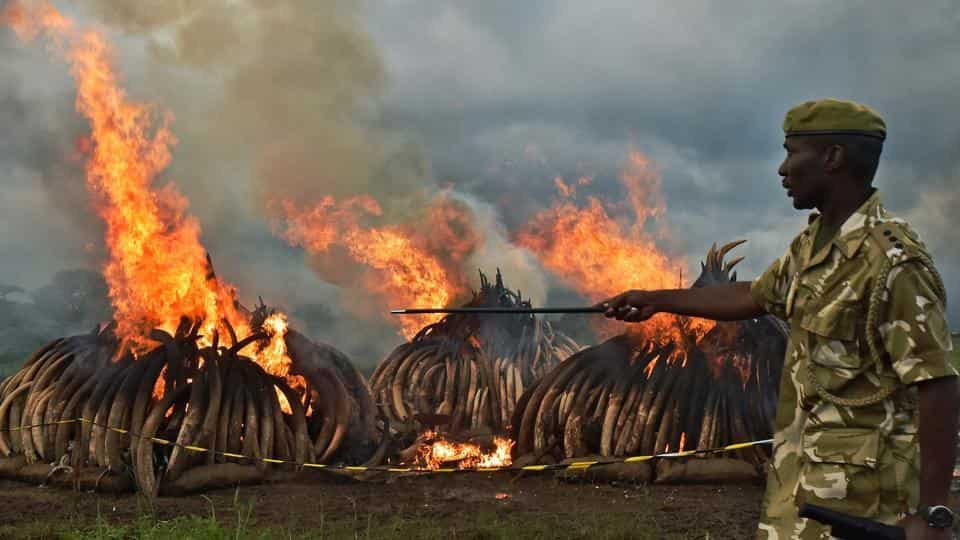Poaching continues to pose a major challenge to wildlife conservation, especially in the conservation of target species – Elephants and Rhinos. Reported cases of poaching in the country remain at a high since November 2012.
In the latest reported incident, authorities have intercepted a container at Mombasa port with ivory weighing 2 tonnes and valued at Kshs 100 million. The illegal consignment which was disguised as decoration stones originated from Tanzania and was destined for Indonesia. Separately, a family of 12 elephants was killed and their tasks carted away by poachers on Saturday 5th January, in Bisadi area, Tsavo East National Park. A team of KWS Rangers are pursuing the poachers.
On the same day, thousands of miles away in the Far East, Hong Kong authorities intercepted 779 pieces of ivory weighing 1.3 tonnes and valued at $1.4m at the Hong Kong port. The container in which the illegal ivory was transported originated from Kenya; and was falsely declared as containing architectural materials. An x ray of the container led the customs officials to discover the ivory which was hidden in sacks and placed beneath stones.
The Far East stands out as smugglers’ choice destination for sale of illegal ivory and animal trophies, due to a large illegal market supported by huge demand for ivory and high fetching prices.
In October 2012, Hong Kong authorities intercepted 2 containers of illegal ivory weighing a total of 4 tonnes and valued at $3.4m. The containers originated from Kenya and Tanzania.
There have been concerns over the rise in poaching since November 2012, when a significant increase in reported incidents was observed. This rise was attributed by KWS in part, to heightened operations against poaching thus bringing the problem into focus. Among the increased measures by KWS in the fight against poaching include involving local communities in the fight; and increased staff efficiency through acquisition of appropriate tools such as aircrafts, vehicles and firearms.
Additionally, KWS commissioned last August the construction of a wildlife forensic and genetics laboratory at the organization head quarters in Nairobi. Among other functions, when completed, the laboratory will strengthen investigations through provision of evidence in the prosecution of cases of wildlife related crimes such as poaching; tracking genetic status of declining wildlife & determining special gene pools that require special protection. The facility is set to be the only one of its kind in East and Central Africa.


